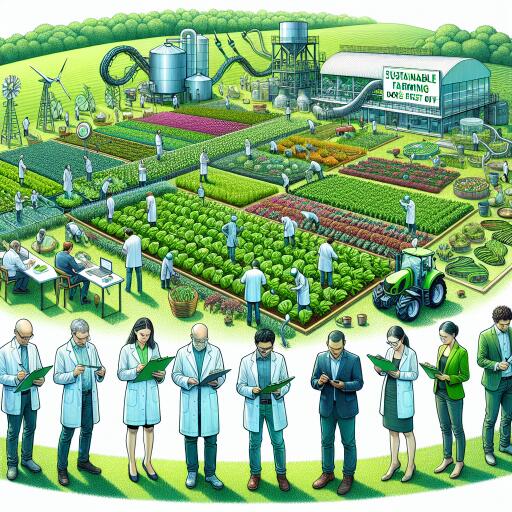
Sustainable Farming Does Pay Off, B.C. Scientists Find
Embracing a multifaceted approach to agriculture that includes a variety of crops, animals, and farming techniques may be the key to sustaining food production, enhancing farmer incomes, and mitigating environmental and climatic impacts, according to recent research findings.
For more than a hundred years, modern agricultural practices have leaned heavily towards intensive farming – utilizing vast quantities of chemicals and focusing on monocultures to maximize food output. This approach, heralded during the ‘Green Revolution,’ has, however, not been without its drawbacks. The escalation in greenhouse gas emissions, the steady erosion of biodiversity, and the unsustainable consumption of water resources are some of the significant consequences highlighted in the study, featured in the journal Science.
The insights from this comprehensive global analysis act as a beacon, signaling a new direction for food production at a crucial juncture. According to Claire Kremen, a leading figure in the study from the UBC’s Biodiversity Research Centre, our current state of agriculture fails to adequately serve humanity’s needs – both from an environmental and a social standpoint. The dual burden of malnutrition and obesity plaguing the global population underscores this sentiment.
The backbone of this study rests on a robust dataset derived from the diverse farming practices of 2,655 farms scattered across continents from Africa to Europe. The examined farms varied widely, from extensive single-crop palm oil plantations in Indonesia to more integrated operations in Brazil that practiced a combination of techniques. These included rotating crops, integrating various types of livestock, employing natural fertilizers, conserving water, and enhancing biodiversity through the use of non-crop plants to act as windbreaks or attract pollinators.
One of the groundbreaking revelations of the research indicates that there isn’t a one-size-fits-all solution. However, farms that employed a mix of strategies experienced undeniable benefits, particularly in terms of biodiversity and food security. The study challenges the convention of agricultural intensification, which often fails to achieve a harmonious balance between productivity and environmental stewardship.
According to Zia Mehrabi, formerly associated with UBC and now at the University of Colorado Boulder, diversified farming not only bolsters resilience against extreme weather conditions but also ensures better nutritional outcomes. This is vividly illustrated in the case of Malawi, where reliance on industrial-scale maize production has heightened vulnerabilities, contrasting sharply with the more sustainable practices of diversified crop cultivation.
In North America, the narrative of industrial agriculture dominating the landscape has led to ecological crises in many areas. Mehrabi highlights the sharp decline in biodiversity and the negative repercussions of excessive fertilizer use. British Columbia’s blueberry farms serve as a case study, showcasing the issues arising from homogenous farming practices, including pest invasions exacerbated by the lack of diversification.
The study also reevaluates the role of livestock within agricultural ecosystems, suggesting that a reduction in consumption coupled with strategic redistribution could alleviate environmental pressures.
This extensive body of research not only promotes a shift towards diversified agriculture but also calls for the adoption of innovative technologies to enhance traditional farming methods. The transition to more sustainable models of agriculture, however, is laden with challenges, including regulatory hurdles, supply chain dynamics, and the need for new incentives and funding mechanisms to support farmers during the shift.
In essence, the study underscores the imperative of revisiting and revitalizing age-old agricultural practices through the lens of modern innovation. By embracing diversity in farming practices, there’s a promising pathway towards achieving food security, ecological balance, and societal well-being.





Leave a Reply